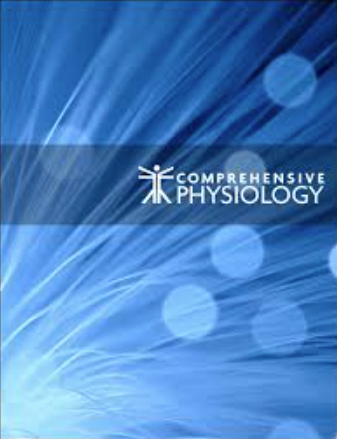Li Zhu, Leo Huang, Anh Le, Tom J Wang, Jiewen Zhang, Xuemei Chen, Junmin Wang, Jian Wang, Chao Jiang
求助PDF
{"title":"中风后自主神经系统与免疫系统的相互作用。","authors":"Li Zhu, Leo Huang, Anh Le, Tom J Wang, Jiewen Zhang, Xuemei Chen, Junmin Wang, Jian Wang, Chao Jiang","doi":"10.1002/cphy.c210047","DOIUrl":null,"url":null,"abstract":"<p><p>Acute stroke is one of the leading causes of morbidity and mortality worldwide. Stroke-induced immune-inflammatory response occurs in the perilesion areas and the periphery. Although stroke-induced immunosuppression may alleviate brain injury, it hinders brain repair as the immune-inflammatory response plays a bidirectional role after acute stroke. Furthermore, suppression of the systemic immune-inflammatory response increases the risk of life-threatening systemic bacterial infections after acute stroke. Therefore, it is essential to explore the mechanisms that underlie the stroke-induced immune-inflammatory response. Autonomic nervous system (ANS) activation is critical for regulating the local and systemic immune-inflammatory responses and may influence the prognosis of acute stroke. We review the changes in the sympathetic and parasympathetic nervous systems and their influence on the immune-inflammatory response after stroke. Importantly, this article summarizes the mechanisms on how ANS regulates the immune-inflammatory response through neurotransmitters and their receptors in immunocytes and immune organs after stroke. To facilitate translational research, we also discuss the promising therapeutic approaches modulating the activation of the ANS or the immune-inflammatory response to promote neurologic recovery after stroke. © 2022 American Physiological Society. Compr Physiol 12:3665-3704, 2022.</p>","PeriodicalId":10573,"journal":{"name":"Comprehensive Physiology","volume":"12 3","pages":"3665-3704"},"PeriodicalIF":4.2000,"publicationDate":"2022-06-29","publicationTypes":"Journal Article","fieldsOfStudy":null,"isOpenAccess":false,"openAccessPdf":"","citationCount":"7","resultStr":"{\"title\":\"Interactions between the Autonomic Nervous System and the Immune System after Stroke.\",\"authors\":\"Li Zhu, Leo Huang, Anh Le, Tom J Wang, Jiewen Zhang, Xuemei Chen, Junmin Wang, Jian Wang, Chao Jiang\",\"doi\":\"10.1002/cphy.c210047\",\"DOIUrl\":null,\"url\":null,\"abstract\":\"<p><p>Acute stroke is one of the leading causes of morbidity and mortality worldwide. Stroke-induced immune-inflammatory response occurs in the perilesion areas and the periphery. Although stroke-induced immunosuppression may alleviate brain injury, it hinders brain repair as the immune-inflammatory response plays a bidirectional role after acute stroke. Furthermore, suppression of the systemic immune-inflammatory response increases the risk of life-threatening systemic bacterial infections after acute stroke. Therefore, it is essential to explore the mechanisms that underlie the stroke-induced immune-inflammatory response. Autonomic nervous system (ANS) activation is critical for regulating the local and systemic immune-inflammatory responses and may influence the prognosis of acute stroke. We review the changes in the sympathetic and parasympathetic nervous systems and their influence on the immune-inflammatory response after stroke. Importantly, this article summarizes the mechanisms on how ANS regulates the immune-inflammatory response through neurotransmitters and their receptors in immunocytes and immune organs after stroke. To facilitate translational research, we also discuss the promising therapeutic approaches modulating the activation of the ANS or the immune-inflammatory response to promote neurologic recovery after stroke. © 2022 American Physiological Society. Compr Physiol 12:3665-3704, 2022.</p>\",\"PeriodicalId\":10573,\"journal\":{\"name\":\"Comprehensive Physiology\",\"volume\":\"12 3\",\"pages\":\"3665-3704\"},\"PeriodicalIF\":4.2000,\"publicationDate\":\"2022-06-29\",\"publicationTypes\":\"Journal Article\",\"fieldsOfStudy\":null,\"isOpenAccess\":false,\"openAccessPdf\":\"\",\"citationCount\":\"7\",\"resultStr\":null,\"platform\":\"Semanticscholar\",\"paperid\":null,\"PeriodicalName\":\"Comprehensive Physiology\",\"FirstCategoryId\":\"3\",\"ListUrlMain\":\"https://doi.org/10.1002/cphy.c210047\",\"RegionNum\":2,\"RegionCategory\":\"医学\",\"ArticlePicture\":[],\"TitleCN\":null,\"AbstractTextCN\":null,\"PMCID\":null,\"EPubDate\":\"\",\"PubModel\":\"\",\"JCR\":\"Q1\",\"JCRName\":\"PHYSIOLOGY\",\"Score\":null,\"Total\":0}","platform":"Semanticscholar","paperid":null,"PeriodicalName":"Comprehensive Physiology","FirstCategoryId":"3","ListUrlMain":"https://doi.org/10.1002/cphy.c210047","RegionNum":2,"RegionCategory":"医学","ArticlePicture":[],"TitleCN":null,"AbstractTextCN":null,"PMCID":null,"EPubDate":"","PubModel":"","JCR":"Q1","JCRName":"PHYSIOLOGY","Score":null,"Total":0}
引用次数: 7
引用
批量引用

 求助内容:
求助内容: 应助结果提醒方式:
应助结果提醒方式:


